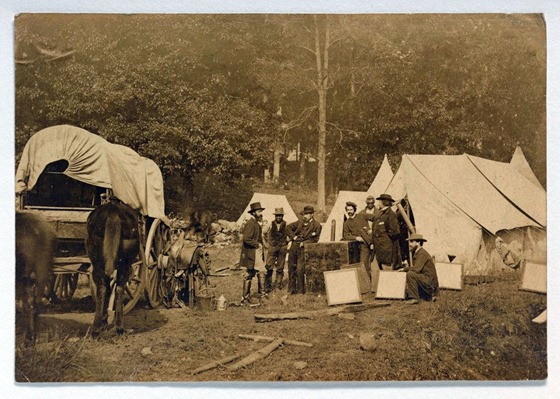Organization of the Second Vermont
Brigade.
Camp Casey, East Capitol Hill,
Washington, Oct. 28, 1862.
Dear Free Press:
All the Vermont regiments are now here, the Sixteenth having arrived yesterday. As the Fourteenth and Fifteenth were sent across the Potomac on their arrival, we had about given up the expectation that the new Vermont regiments would be brigaded together. But last night an order came, brigading them together. The New Jersey regiments with which we have been brigaded are on the march to-day, and the Vermont regiments which were sent across the river will come back and be posted near us. The Sixteenth went into camp right over against us last night. They slept under the little shelter tents—if sleep they could, for it was a very cold night, the ground damp and covered with white frost this morning. They would have had a rather poor look, too, if left to themselves, for something to eat, but they were not allowed to go hungry. The Thirteenth regiment had them to supper last night and the Twelfth invited them to breakfast this morning. Each company entertained the company of the corresponding letter, and Company C of the Sixteenth, who were the guests of the Howard Guard, got a first-rate breakfast and acknowledged our hospitality before they filed away, with three hearty cheers for the Twelfth. The men of the Sixteenth are a fine, hearty looking set of men, and behaved like gentlemen, as they are.
The brigading of these Vermont regiments is particularly satisfactory to us, and we of the Twelfth were also gratified that command of the brigade should fall to our colonel. Company C first got the news, just after dark last evening, and turning out, they filed down to the colonel’s tent, led by Captain Page, and gave three cheers for the Second Vermont brigade, and Colonel Blunt commanding. This called out the colonel who made one of the little speeches which he makes so happily, stopping when he gets through. He congratulated the men on the brigading of these five fine Vermont regiments, which, he felt sure would fight side by side like true comrades. He explained that the command fell to him by virtue of his rank as senior colonel; that it was merely temporary and could last only till a brigadier general should be placed over us, as he trusted a good one soon would be. “We have hitherto, my boys,” he said, “seen but the pleasantest part of a soldier’s life. Thus far we have known little of trial and suffering, and nothing of danger. The rough times are yet to come. When they come we must meet them like men, each doing the very best he knows how to do, for the cause of the country, for the honor of our State, and for the credit of the Twelfth, and looking to God to grant us success.”
Other companies came up in succession, each to cheer the colonel and call him out for a speech, the drum corps winding up the series with a salute and Yankee Doodle. On the whole, it was quite a little time, for an impromptu one.
I wrote of dust the other day. We have had a touch of a different kind of storm since. Day before yesterday our first steady rain set in. All the orders for the day with the exception of guard-mounting and calls to meals, had the go-by, and the men kept closely within their tents. At nightfall the air grew colder, the wind higher, and the rain heavier. Our tents, which are not new, had hitherto kept out the rain pretty well, but did not prove impervious to the big drops driven by the storm. They came right through the canvas, spattering in our faces, covering our blankets with a heavy dew, and running down the inside of the tent in streams.
Things began to have a decidedly damp look for the privates. There is considerable virtue, however, in good woolen and India rubber blankets; and most of us succeeded in cuddling on and under them, in some shape, so as to get some sleep without dreaming of Noah’s flood. About four o’clock in the morning it stopped raining and began to pour down in sheets. Our company streets became rivers; the water in parts of the camp overran the trenches around the tents, and poured in upon the inmates. The ground, soaked to mud, ceased to hold the tent pins, and many a luckless soldier had to turn out in the storm and drive his stakes anew. It was a juicy time all around. But daylight came, at last, with much apparent difficulty, and the question of breakfast began to stare us in the face. We were cold, wet and hungry. The storm had filled the kitchen trenches with water, instead of fire. There was no chance for anything hot; should we have anything but rain-soaked bread? Some companies did not. The good cooks of Company C, however, had been equal to the emergency, had kept their fires burning while there was any possibility of so doing, and had provided in the night against the contingencies of the morning. We had a good breakfast of bread, beef and pork, and, thus fortified within, possessed our souls in patience till the storm broke away about 9 o’clock. It was a hard storm, even for this locality, and left a pond of many acres where our parade ground has been heretofore. The day came off clear and cold, and before night the blankets were sufficiently dried to sleep comfortably in. Another wet night would probably have added considerably to the length of our sick list; as it was but a few over the average were reported.
Yours, B.











